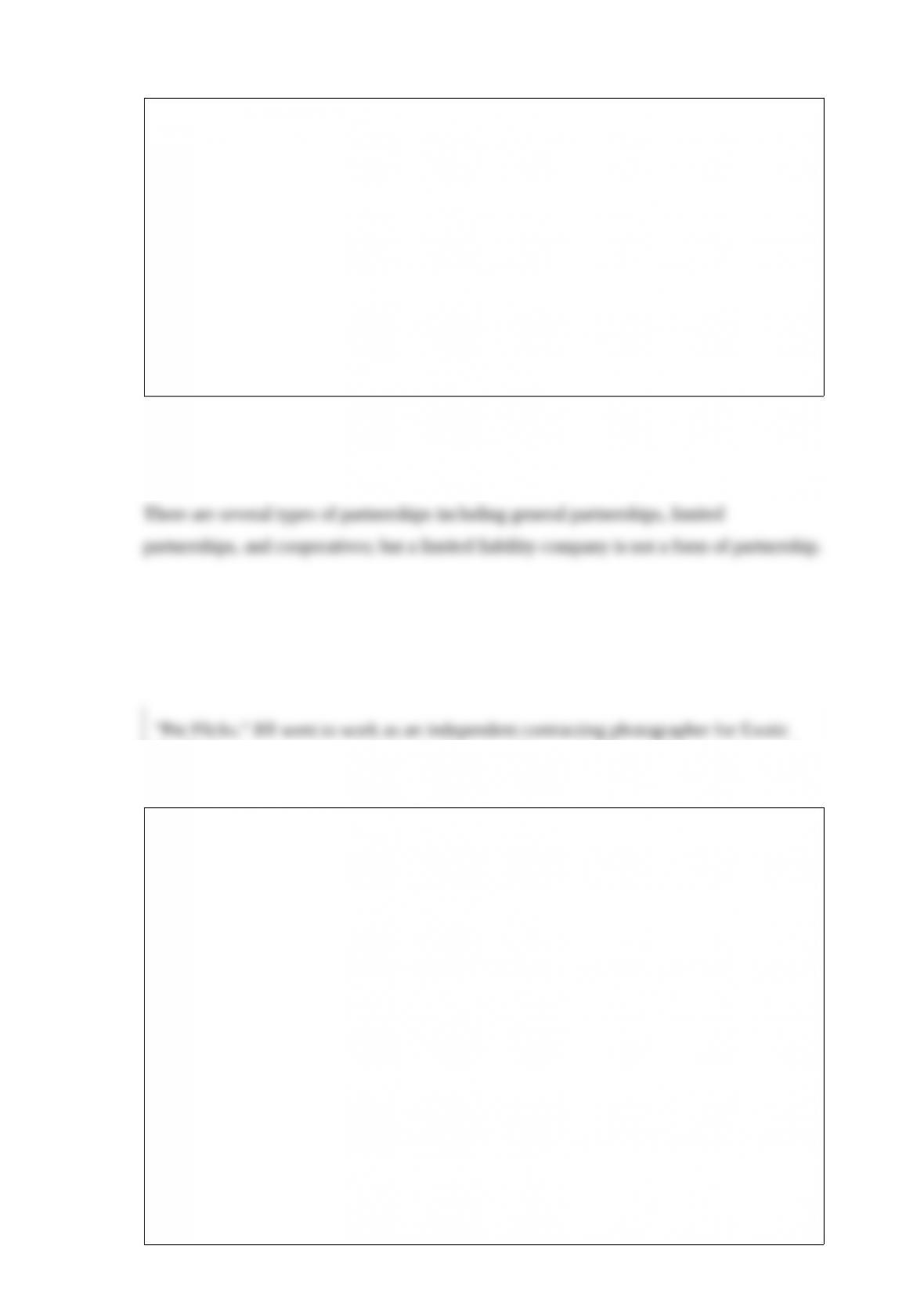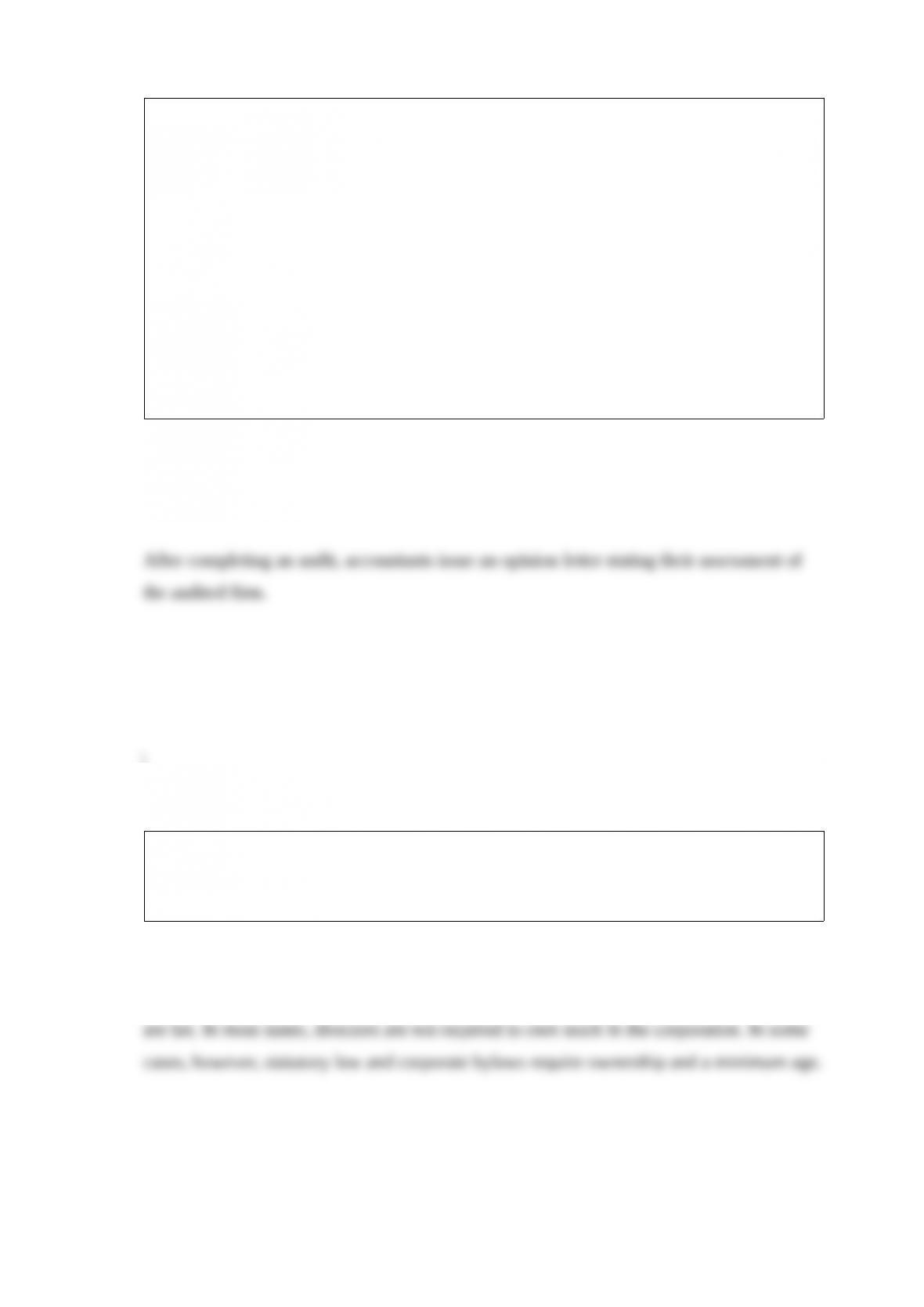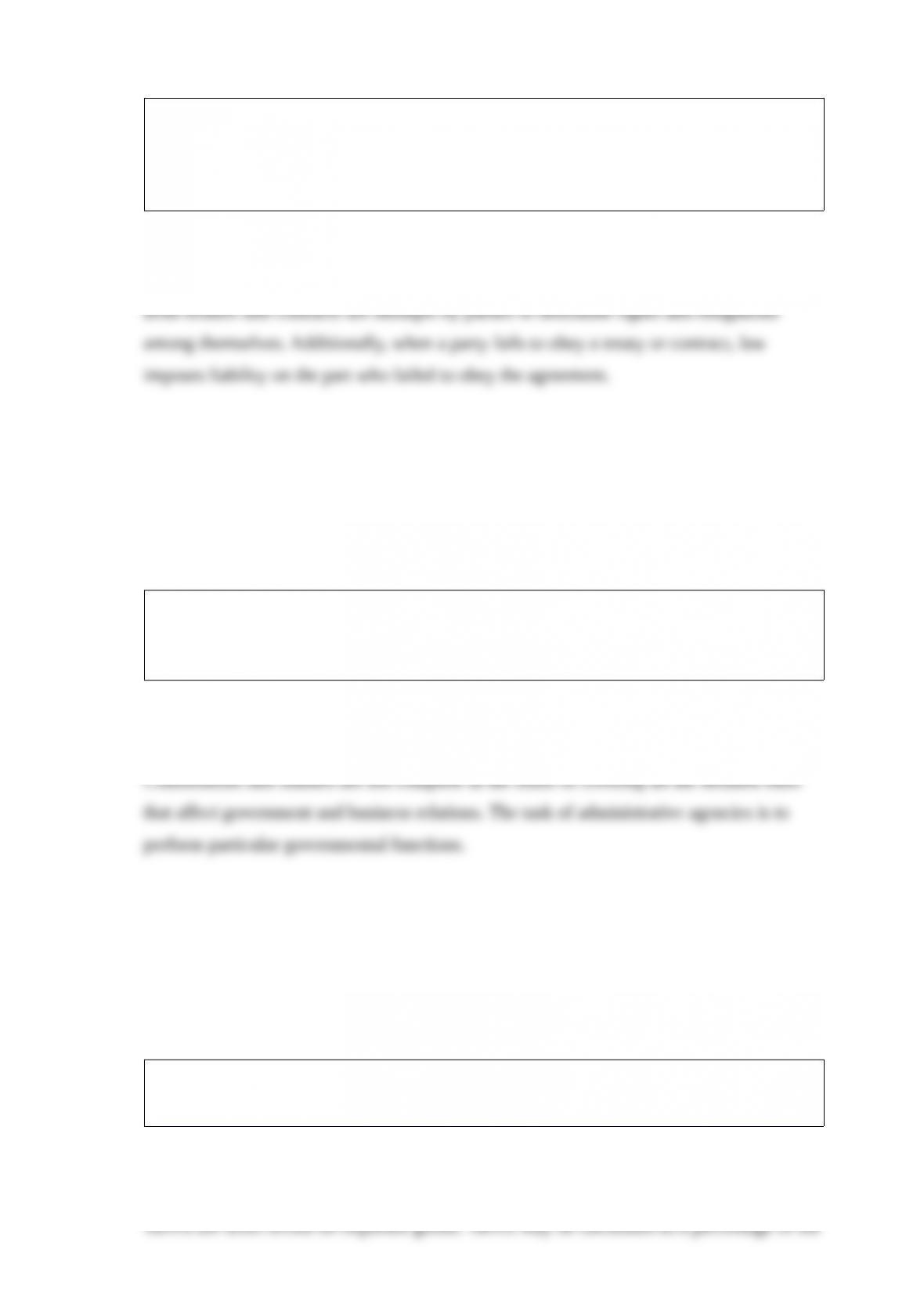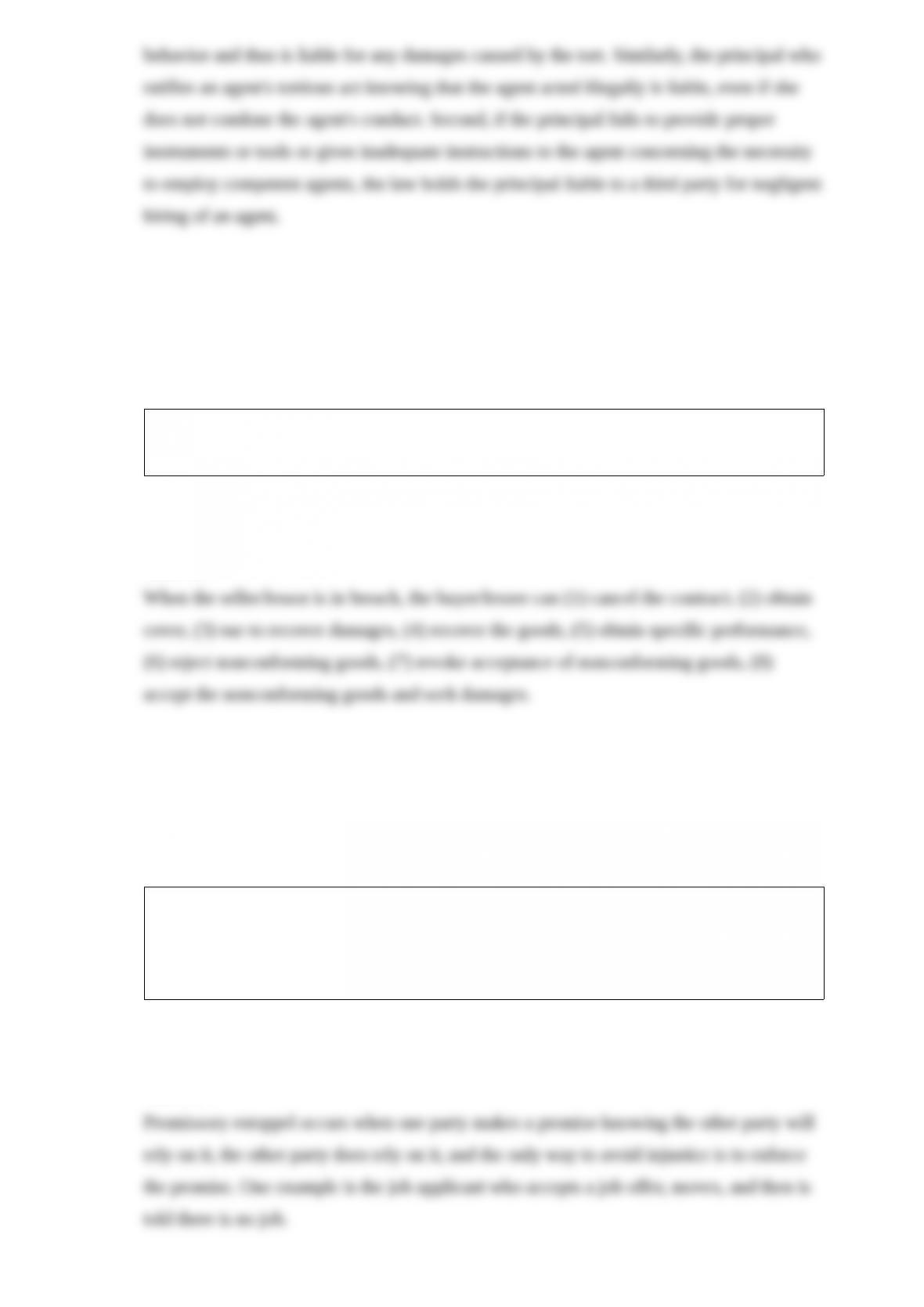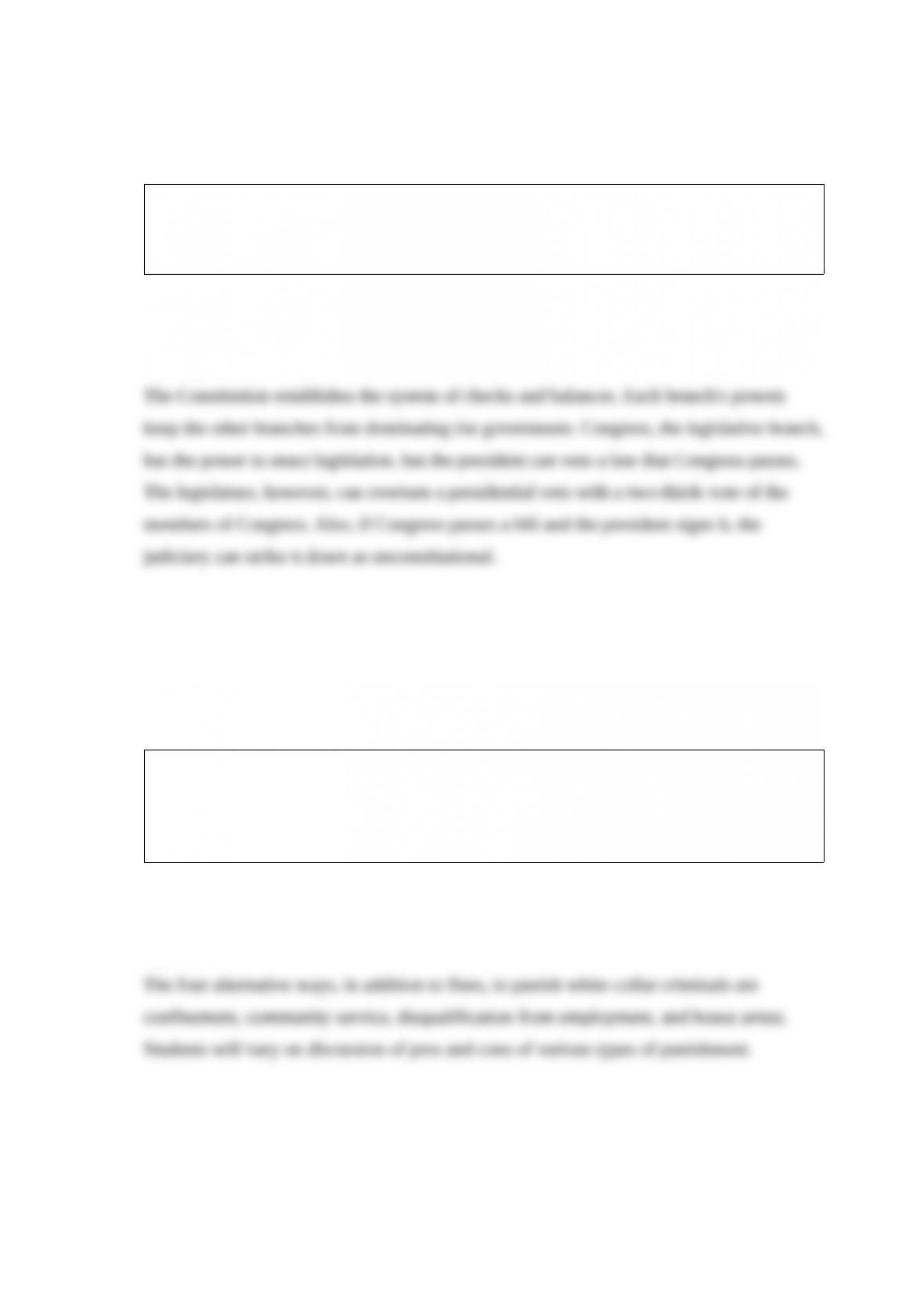"Garage Sale." Richard, who is cleaning out his garage, offers to sell Dawn a used
computer for $200. Dawn replies that "I'll think about it and buy it if I decide to do so."
Richard also calls Denise and offers to sell Denise a used business law book for $50.
She asks if she can clean his apartment in return for the book instead of pay cash, and
he agrees. Richard also agrees to sell a communications book for $5 to Jill who
promises to pick it up the next day. Meanwhile, Sam comes to visit and offers Richard
$45 for the business law book. Richard sells it to him because he decides his apartment
is clean enough. Sam also offers Richard $50 for the used computer. Richard sells it to
Sam because he does not expect to hear from Dawn. Sam sees the communications
book and offers Richard $45 for it. Richard decides to forget about Jill and proceeds to
sell the book to Sam for $45. The next day Denise shows up to clean Richard's
apartment and is very angry because Richard did not save the book for her. Denise
claims that Richard breached their contract because they had a deal. Richard says that
they never had a deal because no consideration was present. He also said that even if
cleaning house would be considered consideration, any housekeeping done would have
been wholly inadequate to support receipt of the book because his house was already
clean. Jill is also angry because Richard sold the communications book and informs
him that he breached the contract he had with her. Richard tells her that he had no
obligation to hold the book for her because they had a unilateral contract. Two days
after they first talked, Dawn tells Richard that she would like the computer. She tells
him that her response bound him and that he should have awaited her action. Richard
tells Sam that he needs to return everything for a full refund. Sam refuses.
Which of the following is true regarding Richard's claim regarding the inadequacy of
house cleaning as consideration?
A. Richard is correct because cleaning house would not constitute a benefit to the
promisor.
B. Richard is correct because cleaning house would not constitute a detriment to the
promisee.
C. Richard is correct because Denise had only promised - she had not actually
performed.
D. Although, contrary to Richard's assertion, house cleaning can be consideration, it
was not in this case because his apartment was already fairly clean.































